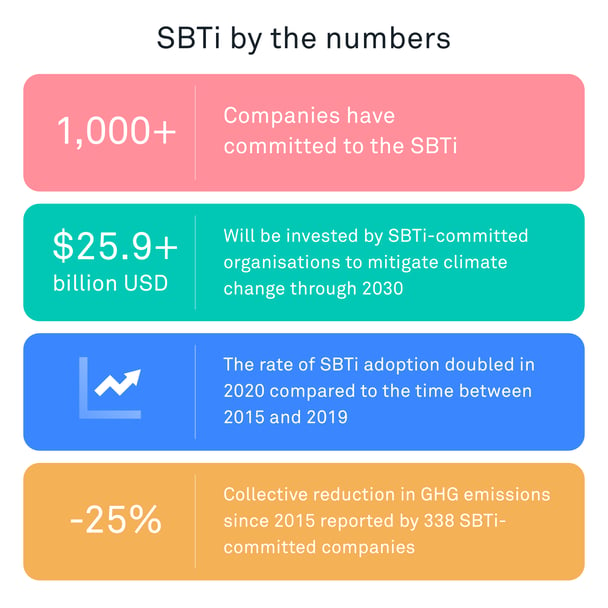Part
01
of one
Part
01
ESG and Fortune 500, Part 2
Key Takeaways
- Science-based targets are mainly focused on cutting greenhouse gas emissions to align with the goals of the Paris Agreement.
- A safe and healthy work environment is essential in promoting the wellbeing of employees and "the long-term sustainability of any company’s operations".
- Three major reasons why the interest of investors in diversity, equity, and inclusion (DEI) will keep growing are enhanced performance, "a differentiated talent pool, and stronger knowledge retention".
- In certain cases, especially where supply chains affect "indigenous peoples or other vulnerable groups, are labor intensive, or where the chains source materials from fragile and conflict-affected areas, human right risks may be evident".
- As the significance of ESG investments continues to grow, companies are expected to implement comprehensive data security and privacy solutions to be in line with an "ESG strategy and measure with ESG objectives".
Introduction
Five main actions that analysts and experts are recommending companies take immediately in order to cater to ESG targets have been provided below. They are: reducing greenhouse gas emissions; ensuring worker health and safety; improving workforce and executive diversity, equity, and inclusion; addressing human rights in the supply chain; and data security and minimizing privacy risks.
Reducing Greenhouse Gas Emissions
- Greenhouse gas emissions can be reduced using science-based targets. The Science Based Targets initiative (SBTi) was created through a joint partnership between CDP, the United Nations Global Compact (UNGC), World Resources Institute (WRI), and the World Wide Fund for Nature (WWF) in 2015.
- Science-based targets are mainly focused on cutting greenhouse gas emissions to align with the goals of the Paris Agreement.
- SBTi enables organizations to learn how to create and adopt science-based targets through independent assessment and approval of a company’s goals.
- SBTi's ultimate goal is to make science-based targets "standard business practice, so that all organizations are involved in mitigating and reducing greenhouse gas emissions".
- Over 1,000 companies have signed up for this initiative and they plan to invest over $25.9 billion in climate mitigation efforts in line with these targets through 2030.
- The companies include Amazon, Facebook, Best Buy, Ford, Heineken, Puma, Adobe, Lego, Nestle, Johnson & Johnson, IKEA, and Credit Suisse Group.
Ensuring Worker Health and Safety
- A safe and healthy work environment is essential in promoting the wellbeing of employees and "the long-term sustainability of any company’s operations".
- In order to accomplish this, companies are expected to design and execute measures considering the occupational health and safety (OHS) risks of their operations.
- Poor corporate OHS practices and policies can cause illnesses, severe injuries, and even fatalities. Failure to maintain a safe and healthy working environment for workers can lead to several negative impacts including loss of production, equipment loss or damage, poor productivity, strikes, reputational damage, and penalties from regulatory authorities.
- Proactive and strong efficient OHS management can result in significant benefits including improved efficiency and productivity, and more opportunities to win contracts.
Improving Workforce and Executive Diversity, Equity, and Inclusion
- There is a growing interest among investors regarding diversity, equity, and inclusion (DEI). DEI better enables collaboration, problem-solving, decision-making, and, ultimately, delivery of better investment solutions and results to clients.
- Three major reasons why the interest of investors in DEI will keep growing are enhanced performance, "a differentiated talent pool, and stronger knowledge retention".
- Diversity and inclusion initiatives require the commitment of a company's leadership in order to succeed, rather than simply appointing sustainability officers.
Addressing Human Rights In The Supply Chain
- Supply-chain risks involve a wide range of environmental and social (E&S) issues such as "labor and working conditions, occupational and community health and safety, biodiversity, pollution prevention, and stakeholder relations".
- In certain cases, especially where supply chains affect "indigenous peoples or other vulnerable groups, are labor intensive, or where the chains source materials from fragile and conflict-affected areas, human right risks may be evident".
- In such instances, "enhanced E&S due diligence should be undertaken" and special attention should be paid to human right risks.
Data Security and Minimizing Privacy Risks
- As the significance of ESG investments continues to grow, companies are expected to implement comprehensive data security and privacy solutions to be in line with an "ESG strategy and measure with ESG objectives".
- An effective data security and privacy and program will not only boost an ESG score, but also prove the dedication regarding sustainable practices, and attract ESG investors.
- Also, security and privacy teams can guide their programs using ESG. A comprehensive data security and privacy solution should include "policies that are environmentally beneficial, socially responsible, and assist with compliance".
Research Strategy
A list of five main actions that analysts and experts are recommending companies take immediately in order to cater to ESG targets was obtained from PwC. This was corroborated by other credible sources.
